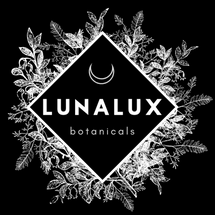In the Gregorian calendar, the Wheel of the Year begins with Imbolc. The Wheel of the Year was extremely important to ancient Celts as it dictated the agricultural cycle of plowing, sowing, harvesting, and resting. The Wheel of the Year is still followed today and includes four Fire Festivals and four cross-quarter celebrations.
What is Imbolc?
Imbolc, also known as St. Brigid's Day or Candelmas, marks the halfway point between the winter solstice and the spring equinox. It is celebrated between January 31st and February 2nd. This day is a celebration of fire, home + hearth, and the lengthening of the days as spring draws nearer. The festival which focuses on celebrating the earliest signs of spring: longer days, the returning warmth of the sun, and life returning to the earth. Other names for Imbolc include Imbolg, Midwinter, Lupercus, or Lupercal.
History
Imbolc is the first of the four Celtic Fire Festivals and has been celebrated by the Irish and Scottish since at least the Neolithic era. The etymology behind Imbolc is not entirely clear, but some theories are that it stems from the Old Irish i mbolc, meaning "in the belly," referring to pregnant ewes or imb-fholc, "to wash/cleanse oneself" in a ritualistic manner. As Christianity spread throughout the British Isles, Imbolc became Candlemas or St Brigid's Day, referring to the Irish Goddess that the church made into a Saint.
Brigid
Many Imbolc traditions are surrounded by honoring the Irish goddess Brigid. In Celtic mythology, Brigid (also spelled Brigit, Brighid or Bríg) is the goddess of fire, fertility, spring, poetry, healing, and prophecy. She is one of three daughters of the Dagda. Her sisters are also named Brigid, which suggests that she is a triple diety. During Imbolc, offerings would be made to Brigid to bless the upcoming crop sowing as well as home protection from fires, lightning, and evil spirits. Although she is a goddess of fire, many wells and waterways in Ireland are dedicated to her.
Correspondences
- Symbols: Brigid's Cross, corn doll, fire, milk, seeds, wells, brooms
- Themes: Cleansing, purification, divination, new beginnings
- Colors: Red, white, pink, yellow, spring green
- Herbs: Angelica, basil, bay, benzoin, celandine, cinnamon, heather, myrrh
- Crystals: Amethyst, calcite, carnelian, garnet, ruby
- Food + Drink: Dairy, bread, onions, leeks, garlic, winter vegetables, creamed soups, spiced wine
Rituals
- FIRE - For Imbolc, fire represents both the goddess Brigid and the sun's returning warmth. Light one or many candles. Spend some time basking in sunlight. If you're able to, build a fire in a fireplace or create a larger fire outdoors such as a bonfire, if weather permits.
- SPRING CLEANING - Because purification is a theme of Imbolc, cleaning one's home has been a traditional practice during Imbolc. Spend some time tidying, cleansing, and purifying your space.
- DIVINATION - The traditions surrounding modern day Groundhog's Day have deep roots in Imbolc. Weather divination was a key practice during Imbolc to determine whether spring would arrive sooner rather than later. Fire scrying is also popular during Imbolc because of its natural relation to fire and the goddess Brigid. Practice whatever form of divination you feel most comfortable with.
- PURIFICATION - Take a purifying ritual bath. Below is a recipe for an Imbolc Ritual Bath. This bath can be taken either as a standalone ritual or in preparation for larger ritual work. Feel free to add or remove as you feel called to.

- 1-2 cups milk (dairy or non-dairy)
- 1 cup sea salt (Celtic Sea salt is preferable)
- Red and/or white flowers
- 10 drops rosemary oil
- 8 drops myrrh essential oil
- 6 drops cedarwood essential oil
- 2 drops cinnamon essential oil
- Begin running an extra hot bath (the milk will cool it down when added)
- Add the essential oils to the sea salt and add to the bath
- Pour in the milk of your choice.
- Top the bath's surface with your flowers.
I hope you enjoyed this little summary of Imbolc. Stay tuned for the next in the Wheel of the Year series: Ostara! In the meantime, I hope you enjoy your Imbolc.

Leave a comment